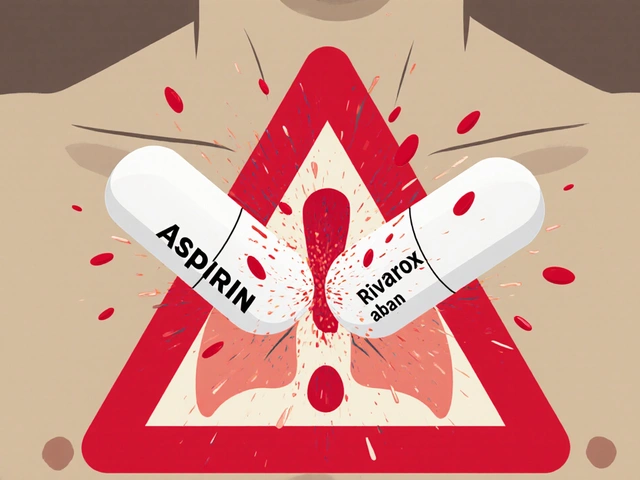Antiplatelet Therapy – What You Need to Know
Ever wonder why doctors keep talking about “blood thinners” after a heart attack? Most of the time they’re actually referring to antiplatelet therapy. Unlike full‑blown anticoagulants, antiplatelet drugs stop platelets from sticking together, which helps keep clots from forming in arteries. This simple trick can mean the difference between a smooth recovery and a dangerous blockage.
Why doctors prescribe antiplatelet drugs
Platelets are tiny cell fragments that rush to any wound and form a plug. That’s great for a cut, but not so good if they start building a clot inside a coronary artery. Antiplatelet therapy is the go‑to solution for people with a history of heart attack, angina, or after procedures like stent placement. It also helps folks with peripheral artery disease and some stroke survivors. In short, if you’ve ever been told you’re at risk for a clot, an antiplatelet is probably part of the plan.
Common options and safety tips
The classic starter is low‑dose aspirin (often 81 mg). It blocks a key enzyme that tells platelets to stick together. If aspirin isn’t enough or you can’t tolerate it, doctors may add a P2Y12 inhibitor like clopidogrel, ticagrelor, or prasugrel. These drugs work a bit differently but achieve the same end – less platelets, fewer clots.
Side effects are usually mild: stomach upset, a bit of bleeding from gums, or easy bruising. The big warning? Never stop a prescribed antiplatelet without checking your doctor, even if you feel fine. Suddenly dropping the drug can trigger a clot that the medication was keeping at bay.
Here are a few practical tips to stay safe:
- Take the medication exactly as directed – same time each day helps keep blood levels steady.
- If you notice unusual bruising, nosebleeds, or dark stools, call your healthcare provider right away.
- Tell any dentist or surgeon you’re on an antiplatelet; they might adjust procedures or timing.
- Avoid over‑the‑counter NSAIDs like ibuprofen unless your doctor says it’s okay – they can increase bleeding risk.
- Pair aspirin with food or a full glass of water to protect your stomach.
People often ask if natural alternatives work. Things like omega‑3 fish oil, garlic, or turmeric have mild platelet‑inhibiting properties, but they’re not a substitute for prescribed therapy. If you’re curious, bring them up with your doctor – they can help you blend supplements safely.
When you’re looking at the list of articles on this page, you’ll see topics ranging from buying meds online to managing heart‑related conditions. While most posts focus on specific drugs, the core idea stays the same: antiplatelet therapy is a cornerstone of heart‑health care. Whether you’re reading about Cordarone, Toprol, or even thyroid‑arrhythmia links, keep in mind that keeping platelets in check is often part of the bigger treatment picture.
Bottom line: antiplatelet therapy isn’t a one‑size‑fits‑all, but it’s a proven way to lower the risk of dangerous clots. Stick to your doctor’s plan, watch for warning signs, and you’ll give your heart the best chance to stay clear‑cut. Got more questions? Dive into the related articles below – they cover everything from choosing a safe online pharmacy to side‑effect management, all aimed at helping you stay informed and healthy.

Ticagrelor and Diabetes: Risks, Benefits, and Evidence You Can Use
Worried how ticagrelor fits with diabetes? Clear, evidence-based guide on benefits, bleeding risk, dosing, and real-world decisions for safer heart care.
View More




